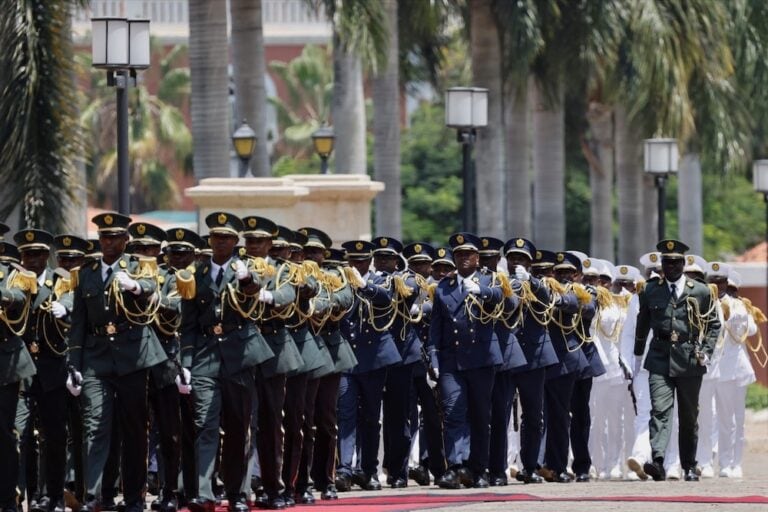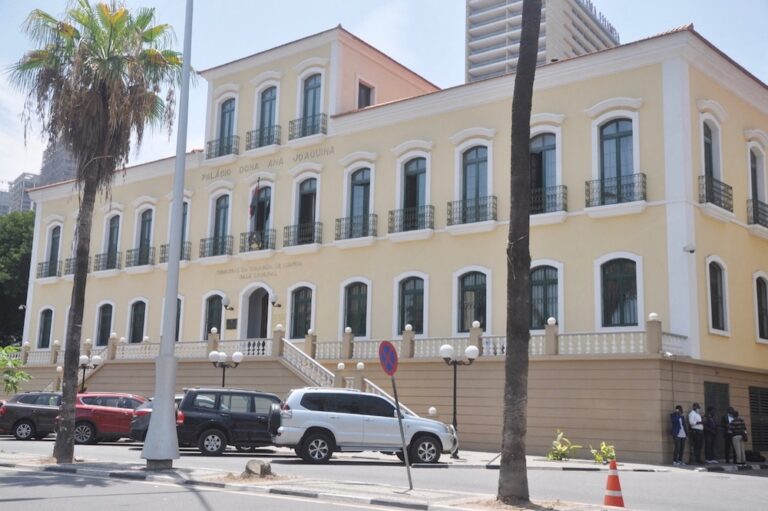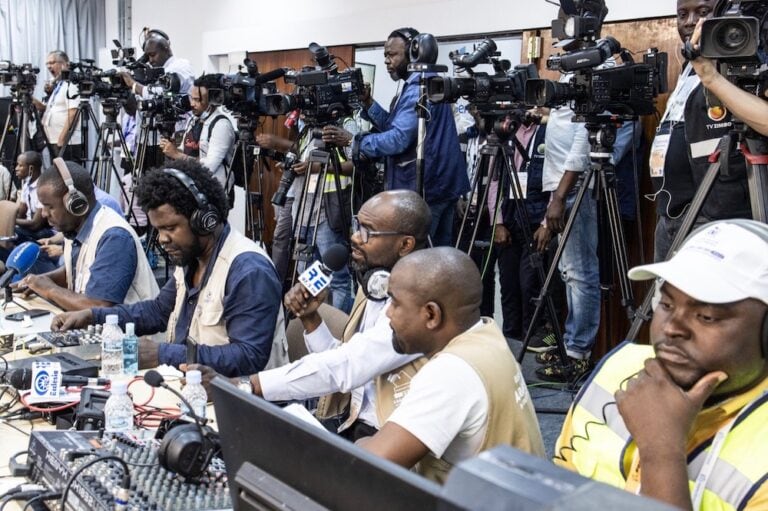(MISA/IFEX) – On Tuesday 31 August 1999, Mauricio Cristovao, a young journalist working or Radio 5, the sports channel on the government-owned Radio Nacional de Angola, was gunned down in the capital, Luanda. According to Radio Nacional, twenty-four year-old Cristovao was shot three times, once in the head and twice in the chest by unknown […]
(MISA/IFEX) – On Tuesday 31 August 1999, Mauricio Cristovao, a young
journalist working or Radio 5, the sports channel on the government-owned
Radio Nacional de Angola, was gunned down in the capital, Luanda.
According to Radio Nacional, twenty-four year-old Cristovao was shot three
times, once in the head and twice in the chest by unknown gunmen who had
ambushed the journalist on his way home.
On 1 September, the police said they were looking for three men, “alleged to
be friends of the victim,” as the main suspects in the crime. The police
added that four people, including two women, had been arrested in connection
with the murder of another employee of Radio Nacional, Joao da Costa, an
administration assistant, who was also shot and killed on 31 August in an
apparent car robbery. According to witnesses, Da Costa’s body was found in
his car in the centre of Luanda.
The Secretary General of the Journalists Association of Angola (SJA),
Avelino Miguel, described the murder of Cristovao as an assassination,
adding that it was a clear indication that the lives of Angolan journalists
were in danger following the threats of violence announced by Information
Minister Hendrik Vaal Neto on 1 June this year (see IFEX alerts of 10 June
and 8 June 1999). The SJA also expressed its concern over the decline in the
respect of journalists in Angola.
Jorge Silva of MISA-Angola told MISA that the real blame for Cristovao’s
murder should be placed at the door of Minister Neto since he was singularly
responsible for inciting crime and violence against journalists in Angola.
Earlier this year, Minister Neto also warned newspapers and radio stations
that they faced closure if they did not take a patriotic stance when
reporting on the country’s civil war.
Between 19 August and 6 September, at least eight journalists in various
parts of Angola were interrogated as the government launched a full-out
campaign to discourage commentary and reporting on the civil war. Several
independent journalists working in war affected areas were particularly
affected.
Several journalists in the provincial capitals of Malange in the north and
Bie in the central highlands told MISA-Angola that they feared for their
lives after the authorities resorted to legal actions to arrest local
correspondents of national and independent media and labeling them enemies
of the state. The church-owned Radio Ecclesia and the Voice of America (VOA)
delegation in Angola acknowledged too that their correspondents in the
cities of Malange and Kuito faced imprisonment for reporting on the
country’s civil war.
On 19 August, journalist Isaias Soares, a correspondent for Radio Ecclesia
and VOA in Malange, was detained for several hours by the local criminal
investigation department (DNIC) in connection with a story about the looting
of humanitarian assistance by government forces. The story was brought to
light by a United Nations official. Soares was interrogated and accused of
threatening state security by helping “the enemy” shell military targets in
Malange (see IFEX alert of 20 August 1999).
On 23 August in Kuito, the local correspondents for VOA, the independent
Radio Luanda Antena Comercial (LAC) and RTP Africa (Portuguese state
television) were questioned by DNIC in connection with military reporting.
The journalists – Aniceto dos Santos, Albano Custodio, Florentino Setila and
Abel Abraao – were accused of disclosing unconfirmed military reports about
the shelling of the provincial capital by Union for the Total Independence
of Angola (UNITA) rebels.
Dos Santos and Abraao are journalists with the state-owned Radio Nacional
and work part-time for VOA and RTP Africa, while Setila is a reporter for
the state-owned television service, TPA, and was reported to have since
resigned as correspondent for LAC.
On Monday 30 August, the chief editor of Radio Ecclesia, Paulo Juliao, was
interrogated by agents of the “selective crimes” section of the DNIC in
Luanda. He was asked to reveal the names of the people who provided
information to the independent bi-weekly “Folha 8”.
Juliao told MISA-Angola that he was interrogated for more than three hours
in connection with an article in “Folha 8” entitled “Government Closes
Ecclesia”. The article included comments by sources at Radio Ecclesia on the
arrest of five journalists on 9 August and the seizure of materials after
the station re-broadcast an interview with UNITA rebel leader Jonas Savimbi.
Juliao was among those arrested at the time.
Juliao said that after the interrogation, he was subjected to a
“brainwashing” session conducted by an experienced police officer. He said
it was the second time since August that such interviews had taken place in
an apparent attempt to recommend him to stop commenting on UNITA and Jonas
Savimbi.
On Friday 3 September, the IRIN news service reported that Gilberto Neto, a
journalist for the independent bi-weekly “Folha 8”, was detained for twelve
hours and then returned for questioning on Monday 6 September. Neto was
summoned by police because of the newspaper’s coverage of the arrest of
several journalists in August.
IRIN quoted an independent journalist as saying, “The problem is the
declaration by the Minister of Information. It’s very, very dangerous now to
report on the situation of the war, the situation of corruption, the
situation of business.”
Recommended Action
Send appeals to authorities:
workers in Angola
harassment
of journalists, and strongly protesting this, pointing out that it is both a
violation of the Angolan Constitution and the fundamental human rights of
media workers as enshrined in international treaties to which Angola is a
signatory
a
result of detentions and interrogations, was contrary to a letter by
Minister Neto to the Committee to Protect Journalists in June this year in
which he said that “the state and the Government of the Republic of Angola
have never intended to harass any journalists or shut down the private
media.” The letter went on to say, “After more than a decade of democracy,
it has been shown that, even in war, the Government declared no state of
emergency or exceptional circumstance, and no journalist can be found in any
Angolan prisons who have justly or unjustly been condemned and arrested for
having published writings or reports”
Appeals To
Honorable Jose Eduardo dos Santos
President of the People’s Republic of Angola
Fax: +244 2 392 733 / 391 476 / 331 898Hendrick Vaal Neto
Minister of Information
Fax: +244 2 343 495
Please copy appeals to the source if possible.


